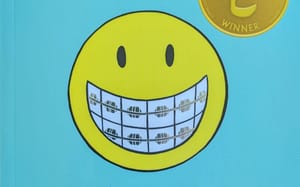I recently read Greil Marcus’s book on Van Morrison. While I have most of the Morrison oeuvre on some form of physical medium it was useful to be able to refer to my aggregate digital collection, and to the Zune marketplace and iTunes Store as backup.
I could quickly look up songs I couldn’t remember or place, and I could confirm my memory of songs Marcus did not mention (he has a particular view of where Morrison’s strengths are, and dismisses large stretches of his work).
A couple of things about this. First, I expect to be able to find – and be able to listen to – much of the stuff I look for, even though, in this case, Morrison is on record as saying that he is not a ‘download artist’ (see this interview with Time, for example). As I have discussed elsewhere, he has also resisted the youtubification of his work. The second is that this certainly leads to a ‘flattening’ of one type of experience – the work involved in finding and playing music. Search and you will find, skimming over many years’ work and many artists.
We went to hear Mumford and Sons in OSU a few weeks ago. I had been interested to see them compared to Crosby, Stills and Nash in an NPR story before going. They responded that they had a variety of folkish influences, UK as well as US. And indeed, we thought we heard something of someone like June Tabor and a more robust version of The Waterboys in what they did. A caustic Independent review heard The Fleet Foxes.
Again, one could trace relationships online. Here is what the Zune marketplace has to report:
Again, in one view this represents a flattening of experience as one can quickly develop a sense of relationships or influences. This type of experience is now routine, of course. We are used to being provided with hooks and hints. Artists and artists are ranked, related and recommended in the environments in which we discover, manage and share music. We can let Pandora do our listening for us.
In each of these cases I was reminded of Nicholas Carr’s discussion of music, from where the phrase ‘flattening of experience’ comes, and my remarks …
A while ago, Nick Carr wrote about this change in our experience of music. He quoted from two BBC reports. One proclaimed “a new golden age of infinite music” in which “there’s no longer any past – just an endless present”. By contrast, he notes, John Taylor, of Duran Duran, takes a more “nuanced view” which he describes as follows: “He wonders whether such easy abundance doesn’t lead to a flattening of experience: When everything’s present, nothing’s new.” He provides a quote from Taylor, who on the basis of the ‘power’ of a TV experience, went on a ten-mile cycle looking for a record, and then listened to it again and again.
Taylor argues that, when it comes to music or any other form of art, the price of our “endless present” is the loss of a certain “magical power” that the artist was once able to wield over the audience. I suspect he’s right. [Be everywhere now]
So, as a full range of music, movies and maybe books becomes available to us, so too does our engagement with it change. Our sense of ownership changes, as media are delivered as a service. The work involved in assembling a personal collection diminishes. Our sense of historical perspective may change. But, I am not so sure about the loss of a certain “magical power” or the flattening of experience. Sure experiences are different. But think of an earlier transition. This magical power may also have been felt to be lost when “mechanical reproduction” allowed live performances to be shared in the first place: a recording could never take the place of a performance, could it? [Stuff as a service]
Carr is always suggestive. However, there is also a Kulturkritik gloominess about some of his writing. In talking about change, he quite often focuses on what we have lost, not on what we have gained.
Now, my musical experiences are limited: my knowledge and collections have been shallow. It is true that this new convenience has flattened my experience in one dimension (and I think also of Adorno’s ‘withering of experience’). However the online world has also enriched my sense of relationships and history and extended my experiences in important ways. I think I have gained more than I have lost. My musical appreciation is, in fact, deeper, because of the opportunities I now have. Both the volume and the variety of what I listen to, and what I buy, is greater than it used to be.
p.s. I would be interested to a future study of how this broad availability affects the composition of music itself.
p.p.s. I am reading Nicholas Carr’s The Shallows at the moment and was interested to see Steven Johnson’s critique of it in the NYT earlier today.



